Lab Director
Luigi Cinque

Luigi Cinque received his laurea degree in Physics from the University of Napoli, in 1983. From 1984 to 1990 he was with the Laboratory of Artificial Intelligence (Alenia S.p.A), working on the development of expert systems and knowledge-based vision systems. In 1990, he joined the Department of Computer Science of the Sapienza University of Rome, where he is currently, a Full Professor. His first scientific interests cover Image Processing, Shape and Object Recognition, Analysis and Interpretation of Images and their Applications, with particular emphasis at Content-Based Retrieval in Visual Digital Archives, and Advanced Man-Machine Interaction, assisted by Computer Vision. Actually, his main interests involve Distributed Systems for Analysis and Interpretation of Video Sequences, Target Tracking, Multisensor Data and Information Fusion. Some of techniques he has proposed have found applications in field of Video-Based Surveillance Systems, Autonomous Vehicle, Road Traffic Control, Human Behaviour Understanding, and visual inspection. He is author of more than 200 papers in National and International Journals, and Conference Proceedings. He currently serves as reviewer for many International Journals (e.g., IEEE Trans. on PAMI, IEEE Trans. on Circuit and Systems, IEEE Trans. on SMC, IEEE Trans. on Vehicular Technology, IEEE Trans. on Medical Imaging, Image and Vision Computing). He served an scientific committees of International Conferences (e.g., CVPR, ICME, ICPR) and symposia. He serve as a reviewer for the European Union in different research program. He is Senior Member of IEEE, Member of ACM and Member of IAPR.
Professors and Post-Doc Researchers
Marco Raoul Marini

Marco Raoul Marini received the B.Sc and the M.Sc. (cum laude) in Computer Science from Sapienza University, Rome, Italy, in 2015. In 2019, he obtained a Ph.D. in Computer Science and is a member of the Computer Vision Laboratory in the Department of Computer Science at the same University. His research interests include Human Behavior Analysis, Virtual and Augmented Reality, Multimodal Interaction, Natural Interaction, Machine Learning, and Deep Learning. All these interests are focused on the development of systems applied to the problem of behavior understanding. The main application area is the eXtended Reality (XR). He recently focused on Interactions, Locomotion, and Human-centered analysis in VR and Brain Computer Interface (BCI) integration. He is a member of IEEE, ACM, INSTICC, and CVPL.
Romeo Lanzino
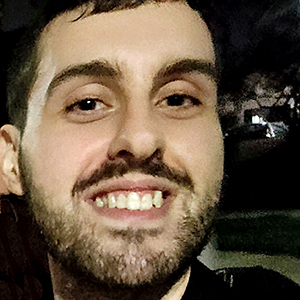
Romeo Lanzino received B.Sc. and M.Sc. (cum laude) in Computer Science from Sapienza University of Rome, Italy, in 2019 and 2021 respectively.
Since 2021, he has been enrolled in the National Ph.D. in Artificial Intelligence program and is also a member of the VisionLab at the Department of Computer Science in Sapienza.
His current research interests include Bioinformatics, EEG Analysis, Human Computer Interaction, Deep Learning, and Generative Models.
Ph.D Students
Anxhelo Diko
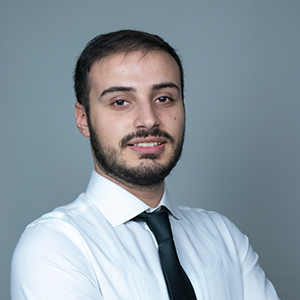
Anxhelo Diko received the B.Sc. in Business Informatics from the University of Tirana, Tirana, Albania, in 2018 and the M.Sc. (cum laude) in Computer Science from the Sapienza University of Rome, Rome, Italy, in 2020. Since 2021, he is a Ph.D. Student in Computer Science, and he is a member of the Computer Vision Laboratory, Department of Computer Science, Sapienza University of Rome. His current research interests include scene analysis, pattern recognition, machine and deep learning, people re-identification, human-computer interaction, medical imaging, graph analysis, and video understanding.
Federico Fontana

Federico Fontana’s PhD research focuses on Efficient Deep Learning through pioneering methods in Pruning, Quantization, and the design of compact models. His work aims to dramatically improve the operational efficiency and effectiveness of deep learning systems, significantly reducing their computational requirements and memory usage. These innovations are vital for deploying sophisticated neural network models in environments constrained by hardware resources, pushing the boundaries of what’s possible in the field of artificial intelligence.
Valerio Venanzi

Valerio Venanzi received B.Sc. and M.Sc. (cum laude) in Computer Science from Sapienza University of Rome, Italy, in 2021 and 2023 respectively. Since 2024, he is a Ph.D. student in Computer Science.
His interests lie in graph applications, computation, and mathematical modeling. His current work focuses on efficient algorithms for low-end devices and applications of graph theory in real world applications.
Diego Bellani
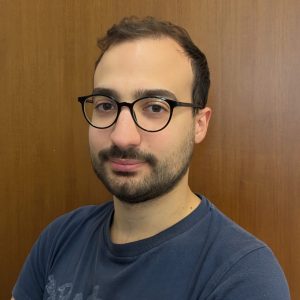
Diego Bellani received the B.Sc. and M.Sc in Computer Science from Sapienza
University of Rome in 2021 and 2024, respectively. Since 2024, he enrolled in the
National Ph.D. in Artificial Intelligence, and he is a member of the VisionLab
at the Department of Computer Science in Sapienza.
His current research interests include neural network compilers, runtimes, and
automatic differentiation.
Matteo Basile

Coming soon
External Collaborators
Alessio Mecca
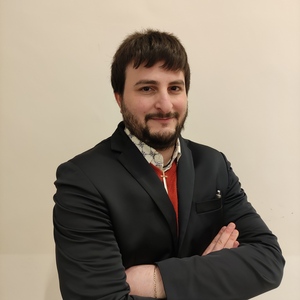
Alessio Mecca received the M. Sc. degree (cum laude) in Computer Science from Sapienza University of Rome in 2015. He took the Ph.D. at Sapienza University of Rome in 2019. He worked on topics related to pattern recognition, signal comparison, and biometrics, especially focusing on wearable sensor-based gait recognition.
Marco Cascio

Marco Cascio received the B.Sc. in Computer Science from University of Messina, Messina, Italy, in 2015 and the M.Sc. (cum laude) in Computer Science from Sapienza University of Rome, Rome, Italy, in 2018. Since 2018, he is a Ph.D. Student in Computer Science and he is a member of the Computer Vision Laboratory, Department of Computer Science, Sapienza University of Rome. His current research interests include scene analysis, pattern recognition, machine/deep learning, event recognition, object tracking, people re-identification, Wi-Fi signal processing, active vision in surveillance systems, signal processing and human-computer interaction.
Alessio Fagioli
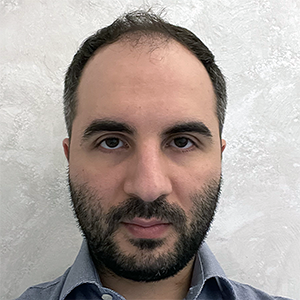
Alessio Fagioli received the B.Sc and the M.Sc. (cum laude) in Computer Science from Sapienza University of Rome, Rome, Italy, in 2016 and 2019, respectively. He is currently a Ph.D. fellow and a member of the VisionLab of the Department of Computer Science, Sapienza University of Rome. His current research interests include Medical Image Analysis, Machine Learning, Deep Learning, Affect Recognition, Event Recognition, Object Tracking, and Human Computer Interaction.
